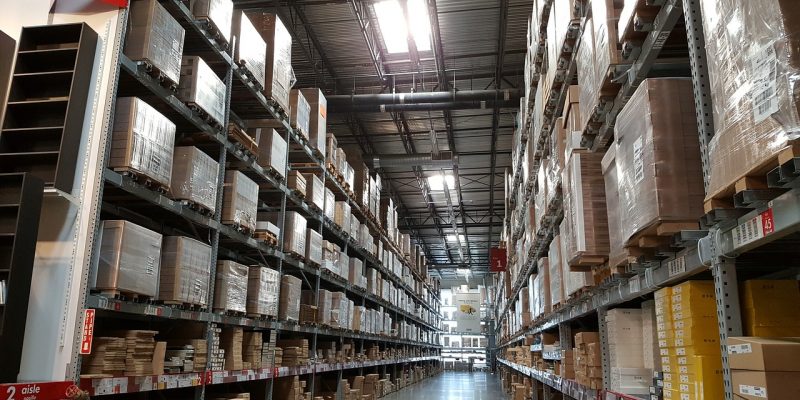Industrial flooring is a critical yet often overlooked aspect of managing a facility. Whether you’re running a warehouse, manufacturing plant, or commercial space, the flooring you choose can significantly impact your operations, safety, and bottom line. Here’s why you should take industrial flooring seriously:
1. Safety First: Reducing Workplace Hazards
The safety of employees and visitors is paramount in any industrial setting. Poor flooring choices can lead to accidents, slips, and falls, which not only harm individuals but can also result in costly litigation and downtime. Industrial flooring solutions like anti-slip coatings, textured surfaces, and high-visibility markings can significantly reduce the risk of accidents, ensuring a safer work environment.
For instance, slip-resistant flooring is essential in areas prone to spills or moisture, such as production floors, loading docks, or kitchens. In addition, specific flooring options can be installed to resist chemicals, which is crucial in environments where hazardous substances are handled.
2. Durability and Longevity: A Cost-Effective Investment
Industrial flooring UK is subject to heavy wear and tear, from constant foot traffic to the movement of heavy machinery. Investing in durable flooring materials like epoxy coatings, reinforced concrete, or polyurethane systems can extend the lifespan of your floors and reduce the need for frequent repairs or replacements.
Durable flooring can handle the stress of daily operations without cracking, chipping, or wearing down. This not only saves money on repairs but also ensures that your operations continue smoothly without the interruptions caused by flooring issues. Over time, the initial investment in high-quality flooring pays off by minimizing downtime and maintenance costs.
3. Operational Efficiency: Supporting Your Workflow
The right industrial flooring can enhance the efficiency of your operations. Smooth, level surfaces facilitate the movement of equipment, vehicles, and inventory, reducing the time and effort needed to transport goods. In contrast, damaged or uneven floors can slow down operations, cause damage to equipment, and increase the risk of accidents.
For example, seamless epoxy flooring provides a smooth surface that is easy to clean and maintain, which is ideal for environments like food processing plants or pharmaceutical facilities where hygiene is crucial. Additionally, floors with designated pathways or safety zones can help streamline workflows, ensuring that employees and machinery move efficiently through the space.
4. Compliance and Standards: Meeting Regulatory Requirements
Industrial facilities must comply with various regulations and standards related to safety, hygiene, and environmental impact. Choosing the right flooring can help you meet these requirements, avoiding fines or legal issues.
For instance, food and beverage industries require floors that are easy to clean and resistant to bacteria, mold, and other contaminants. Similarly, pharmaceutical facilities need flooring that meets strict hygiene standards to prevent contamination. Anti-static flooring is another example, necessary in environments where electronic components are handled to prevent damage from static electricity.
By selecting flooring that meets industry standards, you not only ensure compliance but also enhance the credibility and reputation of your business.
5. Aesthetic and Branding: Enhancing Your Facility’s Image
While functionality is paramount, the appearance of your industrial flooring also plays a role in your facility’s overall image. Clean, well-maintained floors reflect a professional and organized environment, which can impress clients, visitors, and potential investors.
In addition, customized flooring options, such as branded colors or logos embedded in the floor, can reinforce your company’s identity and create a cohesive look throughout your facility. This is particularly important in areas that receive external visitors, such as lobbies, conference rooms, or showrooms.
6. Sustainability: Choosing Environmentally Friendly Options
Sustainability is becoming increasingly important across all industries. By choosing eco-friendly flooring materials and practices, you can reduce your environmental footprint and contribute to a more sustainable future.
Recycled materials, low-VOC (volatile organic compound) coatings, and energy-efficient installation processes are all options to consider when selecting industrial flooring. Additionally, durable flooring that lasts longer and requires fewer replacements also reduces waste and resource consumption.
7. Adaptability: Preparing for Future Needs
Industrial operations are dynamic, and your flooring needs may change over time. Investing in adaptable flooring solutions can save you time and money in the long run. Modular flooring systems, for example, can be easily replaced or reconfigured as your facility’s layout or operational needs change.
In addition, some flooring options allow for easy integration of new technologies, such as anti-static coatings or antimicrobial surfaces, which may become necessary as your industry evolves. By choosing versatile flooring solutions, you ensure that your facility remains flexible and ready to meet future demands.
Conclusion
Industrial flooring is more than just a surface to walk on—it’s a vital component of your facility’s infrastructure that impacts safety, efficiency, and overall performance. By taking industrial flooring seriously and making informed choices, you can create a safer, more efficient, and sustainable working environment that supports your business’s long-term success. Investing in the right flooring now will pay off in the future, ensuring that your facility remains functional, compliant, and visually appealing for years to come.













Comments